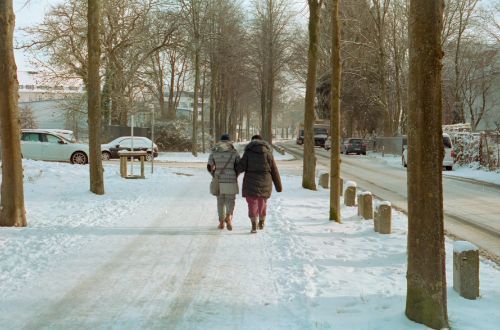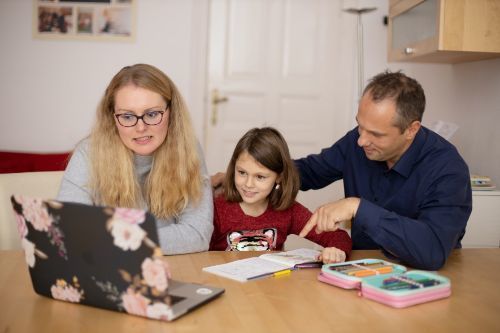Volunteer Your Time, Change a Child's Life
Nobody longs for a safe and loving family more than a child in foster care. As a court-appointed special advocate (CASA) volunteer, you are empowered by the courts to help make this dream a reality. You will not only bring positive change to the lives of these vulnerable children, but also their children and generations to come. And in doing so, you will enrich your life as well.
- What is a CASA Volunteer?
- Is there a "typical" CASA Volunteer?
- What Do CASA Volunteers Do?
- How Many Cases on Average does a CASA Volunteer Carry at a Time?
- How Many CASA Programs are There?
- Who Can Be a Volunteer?
- How Effective have CASA Programs Been?
- How Does a CASA Volunteer Investigate a Case?
- How Much Time does it Require?
- How long does a CASA volunteer remain involved with a case?
- How does the Role of a CASA Volunteer Differ from an Attorney?
- How is CASA funded?
- How does a CASA Volunteer Differ from a Social Service Caseworker?
-
What is a CASA Volunteer?
A Court Appointed Special Advocate (CASA) volunteer is a trained citizen who is appointed by a judge to advocate for the best interests of abused and neglected children in court.
-
Is there a "typical" CASA Volunteer?
CASA volunteers come from all walks of life, with a variety of educational and ethnic backgrounds. There are more than 76,000 CASA volunteers nationally and more than 1,197 in the state of Tennessee. Local programs vary in the number of volunteers they utilize. Nationally, aside from their CASA volunteer responsibility, 50 percent of volunteers are employed in regular full-time jobs; the majority tend to be professionals. 82% of volunteers nationwide are women; 18% are men.
-
What Do CASA Volunteers Do?
A CASA volunteer provides a judge with carefully researched background of the child to help the court make a sound decision about that child's future. The CASA volunteer must determine if it is in a child's best interest to stay with his or her parents or guardians, be placed in foster care, be placed with other relatives, or be freed for permanent adoption.
-
How Many Cases on Average does a CASA Volunteer Carry at a Time?
The number varies from jurisdiction to jurisdiction, but an average caseload is one to two.
-
How Many CASA Programs are There?
There are nearly 1,000 CASA programs in 49 states across the country including Washington, D.C. and the U.S. Virgin Islands.
-
Who Can Be a Volunteer?
You do not have to be a lawyer or a social worker to be a volunteer. We welcome people from all walks of life. We are simply looking for people who care about children and have common sense. As a volunteer, you will be thoroughly trained and well supported by professional staff to help you through each case.. You must pass a background check, participate in a 30-hour pre-service training course and agree to stay with a case until it is closed (a year and a half on average).
-
How Effective have CASA Programs Been?
Research suggests that children who have a CASA have better chances of finding permanent homes than non-CASA children, and that they and their families receive more services than children who have no CASA volunteer.
-
How Does a CASA Volunteer Investigate a Case?
To prepare a recommendation, the CASA volunteer talks with the child, parents, family members, social workers, school officials, health providers and others who are knowledgeable about the child's history. The CASA volunteer also reviews all records pertaining to the child -- school, medical and caseworker reports; and other documents.
-
How Much Time does it Require?
Each case is different. A CASA volunteer usually spends about 10 hours doing research and conducting interviews prior to the first court appearance. More complicated cases take longer. Once initiated into the system, volunteers work about 10-15 hours a month.
-
How long does a CASA volunteer remain involved with a case?
The volunteer continues until the case is permanently resolved. One of the primary benefits of the CASA program is that, unlike other court principals who often rotate cases, the CASA volunteer is a consistent figure in the proceedings, and provides continuity for the child.
-
How does the Role of a CASA Volunteer Differ from an Attorney?
The CASA volunteer does not provide legal representation. In the state of Tennessee, the legal representation is handled by an attorney, who is referred to as a Guardian ad Litem (GAL). However, the CASA volunteer does provide crucial background information that assists attorneys in presenting their cases. It is important to remember that CASA volunteers do not simply represent the child's wishes; rather, they exercise their own independent judgment to determine what is actually in the best interest of the child
-
How is CASA funded?
At the local level, CASA programs are generally funded through a combination of private and public funds. Many programs are privately funded through service organizations such as the Junior League and the National Council of Jewish Women. The National CASA Association is funded through a combination of private grants, federal funds (U.S. Justice Department), memberships and contributions.
-
How does a CASA Volunteer Differ from a Social Service Caseworker?
Social workers generally are employed by state governments. They sometimes work on as many as 30 cases at a time and frequently are unable to conduct a comprehensive investigation of each. The CASA volunteer has more time and a smaller caseload (an average of 1-2 cases at a time). The CASA volunteer does not replace a social worker on a case; he or she is an independent appointee of the court. The CASA volunteer can thoroughly examine a child's case, has knowledge of community resources, and can make a recommendation to the court independent of state agency restrictions.
Other Volunteer Opportunities
Interested in helping children but not ready to commit to becoming a volunteer advocate? Click here.
Our Vision: Seeing Every Child in a Safe, Permanent Home
-
CASA Volunteers help change children's lives every day.
76,756
-
Abused and neglected children had a CASA volunteer speaking up for their best interest in the last year.
250, 323
-
Children are waiting for a volunteer empowered to find them a safe, loving, permanent home.
452,000
-
Children in safer homes since 1977.
2 Million






